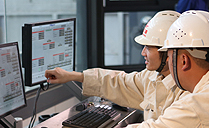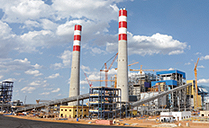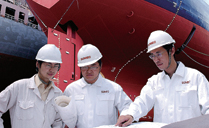Sinomach a booster in Cambodia
(sinomach.com.cn)
China and Cambodia signed a free trade agreement (FTA) on October 12, 2020. The deal was inked between Cambodia’s Commerce Minister Pan Sorasak and Chinese Commerce Minister Zhong Shan. Cambodia’s Prime Minister Samdech Techo Hun Sen and visiting Chinese State Councilor and Foreign Minister Wang Yi were also present to witness the signing.
The signing of the agreement signifies the entry of the two countries into a new era of comprehensive strategic cooperation partnership and joint building of the China-Cambodia community with a shared future, and of cooperation in the construction of the Belt and Road Initiative (BRI).
Trade between the two countries was valued at over 7.4 billion US dollars in 2018 with China enjoying a trade surplus of over 6 billion dollars. Through the FTA, the two countries aim to boost bilateral trade to 10 billion dollars by 2023.
The two countries have made continuous progress in terms of the Belt and Road Initiative, with more and more Chinese enterprises doing business in Cambodia. Sinomach as a leading state-owned enterprise has been developing its overseas markets for a long time, and Cambodia is a focus of the company’s business in the Southeast Asia region.
Aiming for Green Development
The Cambodian Tatay Hydropower Station has sold 866 million kilowatt-hours (kWh) of electricity, and has more than met its annual power generation targets for six years, with safe production days of the station now totaling 2,272. Such brilliant results could not have been achieved without every Sinomacher being devoted to the project.
In 2010, China National Heavy Machinery Corporation (CHMC), a subsidiary of Sinomach, undertook the Cambodian Tatay Hydropower Station by the BOT (Build-Operate-Transfer) mode, with an investment of 540 million US dollars.
In the second year, the station signed an Emission Reductions Payment Agreement (ERPA) with a Singapore branch of Gazprom, a world-leading gas producer headquartered in Russia. The agreement was registered with the United Nations at the end of 2012.
An ERPA provides significant financial incentives to spur governments, local communities, private sector players, and other stakeholders to participate in and benefit from climate-smart activities.
The emission reductions generated by the in-service station and approved by the United Nations can be traded with the buyer Gazprom Singapore, according to the agreement.
The Clean Development Mechanism (CDM) allows a country with an emission-reduction or emission-limitation commitment under the Kyoto Protocol to implement an emission-reduction project in developing countries. Such projects can earn saleable certified emission reduction (CER) credits, each equivalent to one ton of carbon dioxide. The mechanism is seen by many as a trailblazer.
In March 2021, CHMC affiliate Cambodian Tatay Hydropower Limited, the general contractor of the hydropower project, completed the fourth phase of the carbon emission reduction transaction with Gazprom Singapore, after twists and turns caused by the COVID-19 pandemic and the greatly-fluctuating prices on the international carbon market. To date, the Tatay Hydropower Station has reduced carbon emissions by about 3.6 million tons.
The CDM project paved the way for the station to seek additional carbon benefits. With the upward trend of the sustainable development and emission reductions, CHMC has participated in the global response to climate change by building clean energy power stations in the Cambodian Tatay River basin, in support of global green building and human development.
The Cambodian Tatay Hydropower Project has exerted a major influence on developing clean energy, stabilizing electricity prices and promoting national economic construction in Cambodia as a model of China-Cambodia cooperation under the Belt and Road Initiative.
Electricite Du Cambodge (EDC) -- the state power corporation of Cambodia -- awarded the project a Certificate of Appreciation on Dec 16, 2020, to commend it for beating the target for 2020 and making outstanding contributions to Cambodia’s economic and social development.
A Friend in Need
In early 2020, the COVID-19 epidemic quickly surged across the world. While securing epidemic prevention and project progress, CHMC also lent a hand to local companies in Cambodia to help them turn the corner.
The epidemic in Cambodia got worse in March 2020. CHMC immediately donated 50,000 medical masks and other anti-epidemic materials to EDC, its partner of more than 10 years, and also promoted the epidemic countermeasures of China to local people. Widely received and affirmed by local enterprises and people, these efforts of CHMC mirrored the profound friendship between the two countries.
Rising to the Challenge
Sinomach affiliate SUMEC Complete Equipment & Engineering Co (SUMEC CEEC) contracted a water supply expansion project in Siem Reap, Cambodia, the company’s first overseas water treatment project. Once operational, it will enable the region to access 66,000 tons of high quality running water per day, settling the long-existing problem of water shortages.
Faced with the raging COVID-19 pandemic and the obstacles at work brought by the deadly virus, the project staff almost universally decided to stick to their posts and stand by each other through thick and thin.
Zhou Hexiang, a technical engineer in his late 60s, was one of them. In charge of the construction of open channels and pump stations, he kept a close watch on the progress of pile driving, and took count of the fabrication, testing and approval of the piles.
Every day, he started work at 6:30 am and did not leave for rest until 8:00 pm. Led by Zhou’s morning-to-night hard work the team completed the production, acceptance and piling of 140 deep piles ahead of the rainy season peak.
Zhang Haipeng was another steadfast post-holder in spite of the severe situations. He took the initiative to manage the inspection and delivery of goods from domestic factories at the height of the local pandemic.
In two weeks, Zhang went back and forth between factories and ports in different places, accepting and delivering more than 2,000 tons of materials and equipment. He also advanced the technical clarification of pipe fittings and valves, saving more than 5 million yuan ($768,000) for the project.
The staff did good work in project performance and epidemic prevention and control, and in addition, they also actively donated daily necessities and anti-epidemic supplies to local people, earning high praise from the governor of Siem Reap.
Sinomachers overseas made every effort to improve the well-being of local people, further BRI construction, and secure the reliable brand image of Chinese enterprises through more high quality engineering projects.

 R&D and Manufacture
R&D and Manufacture Project Contracting
Project Contracting Trade and Services
Trade and Services




